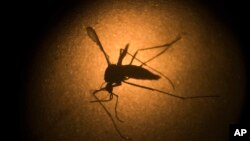Chinese researchers have identified broadly neutralizing human antibodies from a Zika patient that protected mice against infection with the mosquito-borne illness.
The substances are part of a growing arsenal of antibody-related treatments to fight the disease, which causes severe birth defects in babies. The most serious of these defects is microcephaly, in which children are born with a small head and brain that cause severe disabilities.
No antibody treatments have yet received regulatory approval, say experts.
Virus is the target
Unlike other Zika-neutralizing antibodies that have been isolated from human patients, the newly-discovered antibodies only target the virus.
Other human antibodies in development reportedly recognize the closely-related Zika and dengue viruses, increasing the risk of unwanted side effects.
In particular, experts say other antibody treatments could make a dengue infection worse in regions that are endemic for both diseases, should people become infected with both viruses and are treated for Zika.
Researchers say the specificity of the Zika antibodies would avoid such cross-reactivity and side effects.
WHO declared health emergency
More than 80,000 people became infected with Zika in 69 countries and regions worldwide beginning in 2015. Before it was quelled, the World Health Organization declared the Zika virus a public health emergency, saying there was an urgent need for the development of treatments and preventative strategies.
Chinese researchers identified a total of 13 monoclonal antibodies in the blood of a patient who had been infected with Zika and returned to China from Venezuela.
Two antibodies look promising
Two of the antibodies, called Z23 and Z3L1, are thought to thwart infection by targeting sites on on the virus' outer envelope protein, hindering the pathogen's ability to enter cells.
The study was published in the journal Science Translational Medicine.
Researchers say more study is needed to understand specifically how Z23 and Z3L1 offer protection against Zika.





